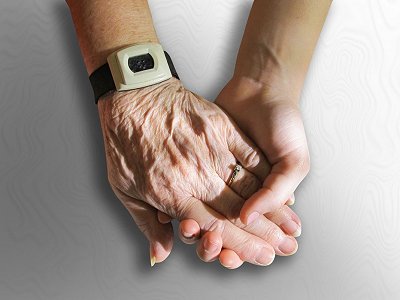
WHAT I SAID ABOUT ETHICAL LEADERSHIP TO A GROUP OF TEENAGERS WHO ASKED ME TO TALK ABOUT IT
-
1. Accept you don’t have all the answers.
Funny things can happen to people when they lead. When they are insecure, leaders make out they have all the answers to cover up for what they don’t know. And some leaders just think that now they are in charge they can tell everyone else what to do. A good leader knows there’s a lot they don’t know and they need to pool the ideas of the people around them. The American academic Joseph Nye said a good leader ‘helps a group create and achieve shared goals’. That’s team work, not about one person showing off.
As a Christian, I think wisdom is needed. Some say it’s the ability to decide between right and wrong. CS Lewis said it’s the ability to distinguish between what is trivial and what is important in life. I think it’s a bit of both, and leaders need others to help them with this.
-
2. Listen to others intently.
When you lead, people expect you to do a lot of the talking. That’s understandable. But it easily gets you to a place where you don’t listen to other people properly. You tune out, waiting for them to shut up before you can take over again. Good leadership takes time to listen to what people are saying, especially those you are there to serve. We spend too much time thinking what we’re going to say next in a conversation, and not enough time working out how we’re going to respond to what is being said. That’s how we end up talking over one another in life, and it leads to disillusionment.
-
3. Lead by example.
The character of a leader is important. I don’t mean personality type – whether you are introvert or extrovert, talkative or quiet. I mean how you embody qualities like love, loyalty, patience, kindness, truthfulness, self-control. These are some of the virtues St Paul talked about in his New Testament letters. If you don’t have these qualities, it will show in the decisions you make. People notice how you are, and if the leader is a bully, a liar or a sexual predator, it can give the green light to some people to be the same. After all, if the leader does this, so can I. It didn’t stop him getting on, did it?
One of the charges levelled at people who try to give ethical leadership is that they are guilty of hypocrisy when they don’t live up to what they say. And we are all guilty of hypocrisy when we don’t practice what we preach. The problem is, hypocrisy is now considered to be the worst of all things. We’ve got to a place where some leaders can have few morals, but get away with it because they’ve never claimed to be good and so can’t be guilty of hypocrisy.
People copy leaders. That’s one reason why today’s generation of strongman leaders who do what they want is not good news.
-
4. Don’t ask someone to do something you wouldn’t be prepared to do.
That speaks for itself. If leaders duck doing hard things by always passing the hard things on to others to deal with, they will start to lose the respect of those around them. Leaders have to show courage, especially the moral courage of doing the right thing even though it costs them.
-
5. Be prepared to say you are wrong, when you are.
We’ve all become worse at this. I think it’s partly because people can be sued for getting things wrong in public life, so they are afraid to admit wrong. I remember once being knocked off my bike in a bad accident by an American driver who made a terrible mistake. As I lay on the floor in pain, he got out of the car and immediately said: that was your fault. Not taking responsibility for our actions is immature and yet it feels like it is on the increase. People use a form of words like: I’m sorry you feel this way about what I did – which is no apology at all and more or less puts the blame on the other person.
It's easier to say sorry when we know the other person will accept our apology and it’s easier to forgive when the other person is prepared to say they got it wrong. That’s the dynamic we need. And good leaders have a chance to model this for others.
-
6. Don’t lie
Research has shown we all lie far more than we admit to, and that’s for each of us to reflect on. But when leaders lie routinely, it sets a really bad example for two reasons. It gives permission for other people to lie. It means you can’t trust all you are being told by those who lead you, which destroys trust. And trust is what makes a place healthy. It’s been noted of politicians in the UK, US and other countries that politicians used to lie tactically to get themselves out of a tight spot but now some of them lie strategically. They lie intentionally as a way of controlling and deceiving others. I won’t say which politicians do this in my opinion – you may disagree, after all – but lies poison us. And they are becoming much more prominent with the arrival of social media.
When leaders tell the truth it creates a healthy culture for others to follow. It was Jesus who said the truth will set you free.
-
7. Surround yourself with different kinds of people and views and don’t stifle disagreement.
There is no point in leaders only surrounding themselves with people who agree with them. You might as well make all the decisions, in that case. People from different backgrounds bring different views and good leaders listen to people who disagree with them without being threatened by it. When groups can share their ideas and they are pooled together, it can make for really smart decisions. It’s been called the wisdom of crowds. To enable this, a good leader has to create a culture where people can speak their minds without fear of repercussion.
-
8. Have a concern for vulnerable and voiceless people
The loudest people in the room are heard first, and these are often people who are used to being listened to. Studies show how the richer you are, the more likely you are to be heard by others. By contrast, poorer, more vulnerable people do not get listened to. Often the most vulnerable people live with so much hurt that they have no energy to speak up for themselves. The mark of a good society is one that makes space for its weakest members to be listened to and cared for. A good leader who manages this is doing the will of God, because this is in his character.
-
9. Do not be a slave to money
Some of the worst dictators of the last century weren’t that interested in owning lots of things and stashing away lots of money. Stalin was a truly evil human being but he lived quite simply. Today, across the world, a growing number of political leaders are using their position to steal money for themselves and their families. Even in democratic countries, political leaders are getting richer and surround themselves with rich people who have their own agendas. Money turns the heads of many leaders and can distort their decision making. Jesus was straight up on this one: you cannot serve both God and money, he said.
-
10. There are always at least two sides to a story
Good leaders have to deal with plenty of complaints. It may be tempting to believe the first person who speaks to you, but they may be telling you a distorted story. This isn’t necessarily because they are lying to you; they may believe what they are saying. But good leaders need to listen to other people’s side of the story, because it may be different. I’ve had people get cross at me because I have said I need to hear the other side to a story, but that’s how we get to the truth. It’s how our law courts work. If we immediately believe only one side of the story, we’ll only create more conflict.
-
11. Create humour
If you can’t laugh at yourself, the chances are you have become too pompous. No-one should treat themselves too seriously. It’s not just about allowing other people to poke fun, it’s about creating an environment where humour and comedy is cherished. Places where people laugh a lot are healthy places to work.
-
12. Get rest and have outside interests
Former US president Bill Clinton said the worst decisions he made as president were always ones he made when he was too tired. We lose perspective when we are tired; we don’t weigh up the evidence in front of us properly; we become more risk-averse and also less forgiving towards others. That’s why good leaders see their need to rest. And why finding hobbies to pursue gives you a different take on life. People who are only obsessed with their work can lose perspective on life.
-
13. Stand up to bullies
There is a bully in every workplace, it seems. It isn’t just in school that you find them. They want to dominate others and bend them to their will. A good leader will come across lots of bullies and, however hard it may feel at times, they have to be confronted. If not, the leader pretty much hands their leadership to the bully. It also means those you lead are more likely to get hurt.
That’s a list of thirteen ways you can be an ethical leader:
. Accept you don’t have all the answers
. Listen to others intently
. Lead by example
. Don’t ask someone to do something you wouldn’t be prepared to do
. Be prepared to say you are wrong, when you are
. Don’t lie
. Surround yourself with different kinds of people and views and don’t stifle disagreement
. Have a concern for vulnerable and voiceless people
. Do not be a slave to money
. There are always at least two sides to a story
. Create humour
. Get rest and have outside interests
. Stand up to bullies
But let me finish with one final story.
Good leaders can be found in the most unexpected of places.
Alexey Navalny died a year ago in a Russian prison. He was a politician who opposed Vladimir Putin and exposed Putin’s savagery and corruption. For doing this, he was poisoned with Novichok, which is the most dangerous substance on earth. It should have killed him, but he survived after treatment in a German hospital. The damage to his brain was so severe he had to learn how to speak and read again. People pleaded with him not to return to Russia because they feared he would be killed but he insisted, saying the fight was there and he would not back down from the Kremlin bullies.
He was arrested the moment he arrived in Russia and never got out of prison. He was held in solitary confinement, with poor food and little heating in the cold of Russia’s winter. Every hour of every night he was woken by guards by having a light shone in his face, so that he never got more than one hour’s sleep at a time. Other prisoners were told to scream in his face. Navalny’s response, and I like this, was to scream back at them about how corrupt Russia had become.
Navalny became a Christian as an adult and saw standing up for truth and justice to be part of his calling. In prison, he learned the Sermon on the Mount by heart. The day before he died, he was seen on camera looking relaxed and still laughing. To have died a day later meant he was probably murdered.
To exercise ethical leadership, you don’t have to have power. Sometimes, the most powerless of people are the most powerful. Navalny showed you can be an ethical leader from a three metre by two metre prison cell. In a way, we are all leaders because we all have willpower and can influence the people around us. Your ethical leadership starts here.
POPULAR ARTICLES

God In The Cow Shed
2020 has been dominated by the C word. Not that C word. I mean conspiracy theory involve space. Some people believe the

Viral With The Holy Spirit
Since the tech revolution, insurgent new start-ups have enjoyed using the word ‘disruption’

Long Lost family
Some types of storytelling mess with your brain. Intentionally. Like one of those novels where you assume

Valuing Age
Lots of work is being done round unconscious bias in society, especially around gender and ethnicity

